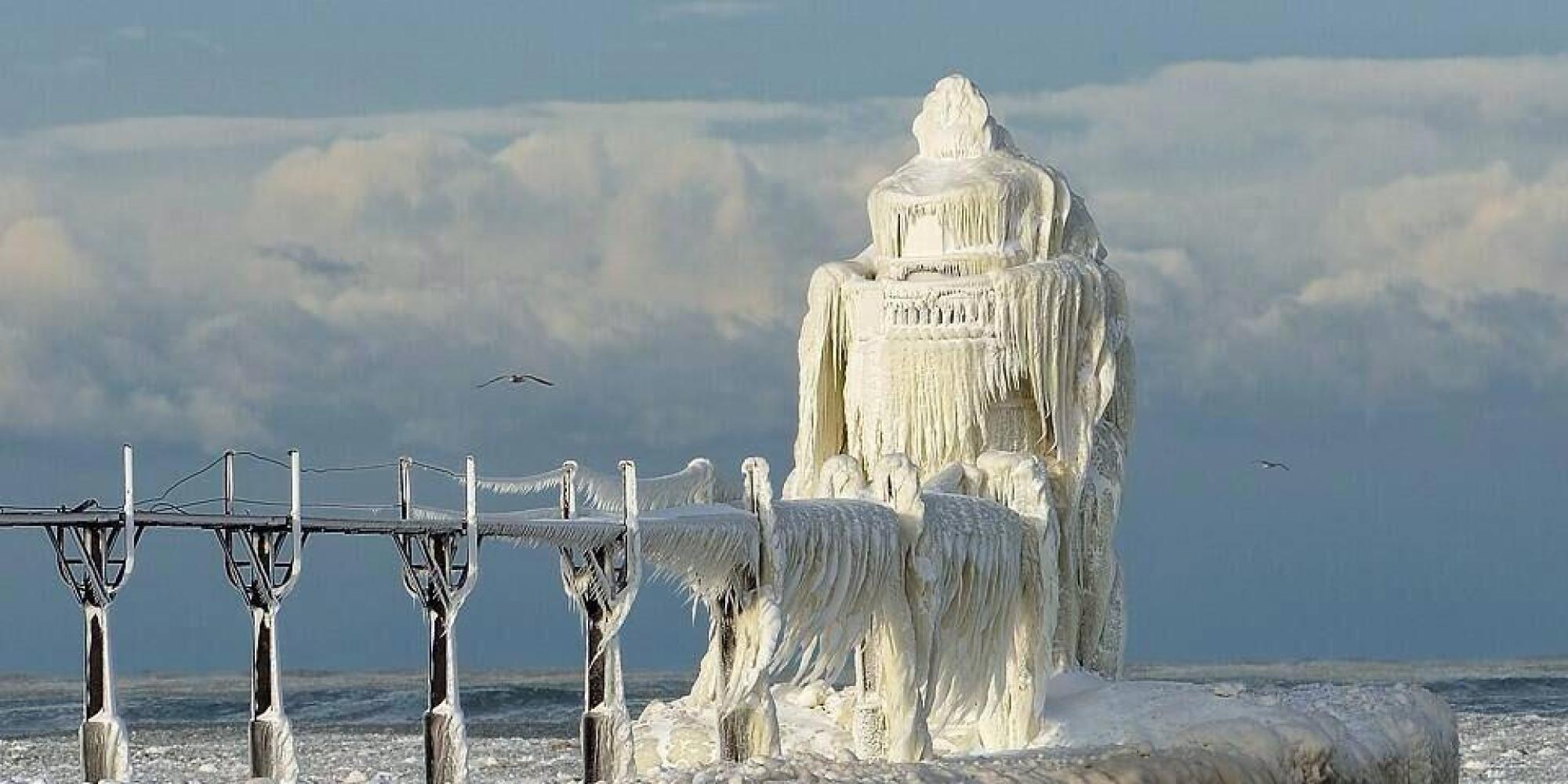
When you are outside and it is below zero and you are shoveling the latest snowfall in this record snowfall winter you don’t usually stop and think how all this cold and snow will affect your boating and swimming next Summer; but you should. The Great Lakes have been under significant strain the last few years with lake levels at historic low water levels.
Interestingly, the recent record low temperatures and the ice coverage that is the most in over 20 years will probably lead to higher lake levels next year. A recent satellite image from he National Ocean and Atmospheric Administration (NOAA) shows that the ice coverage on the Lake Michigan is way above normal due to the extreme cold weather.
![]()
According to NOAA’s Great Lake Coast Watch, about 45 percent of Lake Michigan is considered to be frozen. Lake Erie is about 95 percent ice-covered. Lake Superior is about 85 percent ice covered. Lake Huron is about 70 percent frozen and Lake Ontario is about 25% frozen.
A recent post by Lisa Borre in National Geographic’s Water Currents cites a report released by the Great Lakes Integrated Sciences and Assessments Center (GLISA), a federally funded collaboration between the University of Michigan and Michigan State University, a team of American and Canadian scientists explains the relationship among evaporation, ice cover, and water temperature.
Prior to this year winter ice cover has declined by 71 percent over the last 40 years, on average. Summer water temperatures and annual evaporation have increased due to climate change. Apparently water temperature and evaporation are important factors that affect the lakes water levels. While you would think that the ice cap by itself reduces evaporation, the study states that it is the fact that the ice cap makes the lake cooler, so it delays the evaporation until later in the summer instead of July, when it usually begins.
So, as you shovel that latest snowfall, just think warm thoughts of boating and swimming next summer in healthier and deeper Great Lakes thanks to the largest ice cover in 20 years.